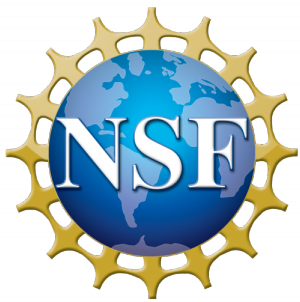September 15th, 2011 - August 31st, 2014 | PROJECT
The PBS NewsHour STEM Learning project is a broadcast and online science journalism and informal science education initiative to report breaking science news and cutting-edge STEM (Science, Technology, Engineering and Mathematics) research and researchers to a national audience. The multi-platform project goals are to: (1) increase and improve the knowledge of the audience with respect to science and technology; (2) stimulate the active engagement of the audience with science and technology through interactive tools; and (3)position the PBS NewsHour as a regular destination for in-depth and innovative science reporting; (4) deploy new and creative digital tools to extend the impact of NewsHour science reporting, especially for youth. The PBS NewsHour is produced by MacNeil/Lehrer Productions and distributed by PBS to PBS television and radio stations across the country, five nights per week. This project is informed by an expert advisory board and other consultants. Project evaluation will be conducted by City Square Associates. The formative evaluation in year one will employ focus groups of adults from the general audience and teens as well as a quantitative survey online to determine a benchmark of current science knowledge, attitudes and behaviors. The evaluation in year two will test digital components of the project in a usability lab setting to gather information to help improve the quality and effectiveness of these deliverables. The summative evaluation will administer a tracking study with the same population surveyed in the first year. Deliverables include: a minimum of 26 science documentary reports broadcast per year plus additional in-studio interviews and coverage of breaking science news; a revamped website, notably "Science and Tech To Go"; a weekly STEM interview or report online featuring Hari Sreenivasan or other reporters; additional weekly digital STEM reporting; and an expanded and redesigned outreach program for teens and educators including an innovative, cloud-based student editing and content-sharing initiative in collaboration with several science centers. Six new PBS NewsHour Student Reporting Labs, established in high-need urban schools, will shoot, edit, and post their videos on the web. The PBS NewsHour science reports will be broadcast and featured on the NewsHour iPhone app, as well as disseminated on the NewsHour's YouTube Channel, Disqus and UStream, Hulu.com, with new science material updated daily on the web. The NewsHour is seen by more than 7 million viewers each week, with additional audiences being reached by radio, the Online NewsHour website, podcasts, and other social media. New community-based programs expand the audience farther. The final summative report will outline the impact of the project and identify the strategies and tactic found to be most effective in making use of digital media to support project goals.
Project Website(s)
(no project website provided)
Project Products
PBS NewsHour - Science
Poster - PBS Newshour: STEM learning for adults, teens, and at-risk populations
Team Members
Patti Parson, Principal Investigator, MacNeil Lehrer ProductionsFunders
Funding Source: NSF
Funding Program: ISE/AISL
Award Number: 1119253
Funding Amount: 1547865
Tags
Access and Inclusion: Urban
Audience: Adults | Educators | Teachers | General Public | Museum | ISE Professionals | Youth | Teen (up to 17)
Discipline: Engineering | General STEM | Mathematics | Technology
Resource Type: Project Descriptions
Environment Type: Broadcast Media | Community Outreach Programs | Media and Technology | Public Programs | Websites | Mobile Apps | Online Media

